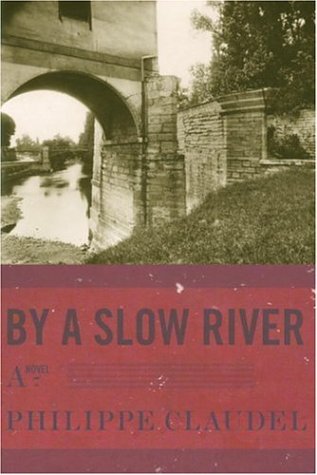By a Slow River
“Bastards, saints – can’t say I’ve ever seen one or the other. Souls are never black or white; they’re all gray in the end …” During World War I the inhabitants of a French village on the Guérlante, the slow river, lived within earshot of the front. But war is not the subject of Philippe Claudel’s first novel. Rather, the story he tells is of the very human souls of the village, “les âmes grises” – gray souls, doing the best they can in the face of inconsolable loss.
The story unfolds through a series of memoirs being written by a policeman who investigated the murder of a 10-year-old girl in Guérlante during the winter of 1917-1918. Those years have long passed, and most of the people involved are dead. Now in midlife, the police officer, who remains unnamed, lays out the pieces of the puzzle. They come together in a picture as horrifying as the war that frames it.
The child’s murder is the central piece of the puzzle. An arrogant judge and vicious military investigator are another. They will produce a murderer, but it won’t be the prime suspect, a man of wealth and power. They hamstring the investigation. But can the police officer cry foul? For he, too, has a “gray soul.” This is the final piece of the puzzle.
The novel flows as smoothly as the river it is set by, and with as steady and strong a current. The author paints his characters sympathetically, even those whose souls seem almost black. A closing twist in the story seals it in grayness, and the reader wonders if there is such a thing as justice. This is a thought-provoking story well worth the read.










